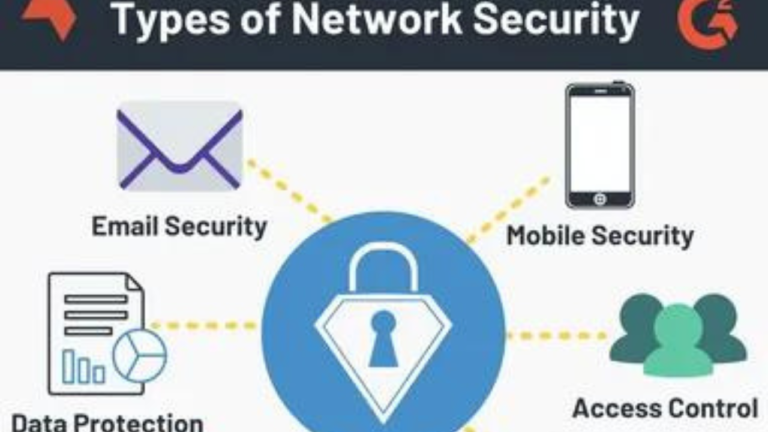The Ultimate Best Firewall for Large Businesses: Fortify Your Enterprise
Now, let me ask you a question about Best Firewall for Large Businesses: have you ever tried to secure a sprawling mansion with nothing but a flimsy chain-link fence? It just won’t cut it, my friends. When it comes to Best Firewall for Large Businesses with complex networks and sensitive data, you need a firewall that’s as robust and impenetrable as a fortified castle wall.
So, buckle up and get ready to explore the Best Firewall for Large Businesses, because we’re about to embark on a journey through the highest echelons of network security.
Best Firewall for Large Businesses
In the realm of cybersecurity, Best Firewall for Large Businesses are the frontline soldiers, the first line of defense against the nefarious forces that seek to wreak havoc on your digital domains. And when it comes to large businesses, you need a firewall that’s not just capable, but downright beastly.
Now, let me tell you, there are plenty of options out there, each one vying for your attention (and your budget). But fear not, for I’ve done the legwork and handpicked the crème de la crème of firewall solutions that are tailored to meet the demanding needs of large enterprises.
Fortinet FortiGate: If you’re looking for a firewall that’s as powerful as it is feature-rich, the Fortinet FortiGate is like a Swiss Army knife on steroids. This bad boy packs a punch with advanced threat protection, high-performance throughput, and a plethora of security services all rolled into one sleek package.
Palo Alto Networks Next-Generation Firewalls: When it comes to cutting-edge Best Firewall for Large Businesses technology, Palo Alto Networks is like the cool kid on the block. Their Next-Generation Firewalls are designed to tackle even the most advanced cyber threats with a potent blend of application visibility, user-based policies, and advanced malware protection.
Cisco Firepower Next-Generation Firewall: Ah, Cisco – a name that needs no introduction in the world of networking. Their Firepower Next-Generation Best Firewall for Large Businesses is like a digital fortress, combining industry-leading threat intelligence with powerful security capabilities to keep your business safe from even the most cunning cyber adversaries.
“A robust firewall is like a loyal guardian, tirelessly standing watch over your digital kingdom, fending off the nefarious forces that seek to wreak havoc upon your cyber realms.”
Now, let’s dive a little deeper and explore what makes these firewall solutions the crème de la crème for large businesses.
What are the key features to look for in a Best Firewall for Large Businesses?
When it comes to Best Firewall for Large Businesses, you can’t just settle for any run-of-the-mill solution. You need a firewall that can handle the sheer volume of traffic, the complexity of your network, and the ever-evolving threat landscape. Here are some key features to keep an eye out for:
- High Throughput and Performance: Best Firewall for Large Businesses generate a massive amount of network traffic, so you need a firewall that can handle the load without breaking a sweat. Look for solutions that offer high throughput and low latency, ensuring your business operations run smoothly without any hiccups.
- Advanced Threat Protection: Cyber threats are becoming increasingly sophisticated, so you need a firewall that can detect and mitigate even the most cunning attacks. Advanced features like intrusion prevention, malware analysis, and sandboxing are essential for staying one step ahead of the cybercriminals.
- Scalability and Flexibility: As your business grows, your firewall needs to be able to grow with you. Look for solutions that offer seamless scalability, allowing you to easily add more capacity or features as your requirements evolve.
- Centralized Management: Best Firewall for Large Businesses often have multiple locations and complex networks, which can make firewall management a nightmare. Centralized management platforms can help streamline the process, enabling you to configure, monitor, and update your firewalls from a single pane of glass.
- Integration and Compatibility: In the world of enterprise IT, different systems and applications need to work seamlessly together. Ensure that the firewall you choose can integrate with your existing infrastructure and is compatible with your other security solutions, like SIEM (Security Information and Event Management) tools.
How do enterprise-grade firewalls differ from consumer or small business solutions?
When it comes to firewalls, not all solutions are created equal. Enterprise-grade firewalls are like the heavy artillery of network security, designed to tackle the unique challenges faced by large businesses. Here’s how they differ from consumer or small business solutions:
- Performance and Scalability: Enterprise firewalls are built to handle massive amounts of network traffic and scale up to meet the demands of large, complex networks. Consumer firewalls simply can’t keep up with the sheer volume and complexity of enterprise environments.
- Advanced Security Features: Enterprise Best Firewall for Large Businesses come packed with advanced security features like intrusion prevention, SSL/TLS inspection, and application-level controls. These features are essential for protecting against sophisticated cyber threats and maintaining compliance with industry regulations.
- Centralized Management: Best Firewall for Large Businesses often have multiple locations and distributed networks, making centralized management a critical requirement. Enterprise firewalls offer robust management platforms that allow for easy configuration, monitoring, and reporting across the entire organization.
- High Availability and Redundancy: Downtime is not an option for large businesses, which is why enterprise firewalls often come with high availability and redundancy features. This ensures that your network remains secure and operational even in the event of hardware failures or other unforeseen circumstances.
- Integration and Interoperability: Enterprise firewalls are designed to seamlessly integrate with other security solutions, such as SIEM tools, endpoint protection, and Identity and Access Management (IAM) systems. This interoperability is crucial for maintaining a cohesive and effective security posture across the entire organization.
What are the challenges of implementing enterprise-grade firewalls?
While enterprise-grade firewalls offer unparalleled security and performance, implementing them is no walk in the park. Here are some of the challenges you might encounter:
- Complexity: Enterprise firewalls are feature-rich and highly configurable, which can make them complex to set up and manage. You’ll need skilled personnel with specialized training to ensure proper implementation and ongoing maintenance.
- Cost: Let’s be real – enterprise-grade firewalls don’t come cheap. Between the hardware, software licenses, and ongoing support, the costs can quickly add up, especially for large organizations with multiple locations.
- Integration Hurdles: While enterprise firewalls are designed for integration, seamlessly incorporating them into your existing infrastructure can be a challenge. You may need to adapt or reconfigure other systems to ensure compatibility and avoid any conflicts or performance issues.
- Migration and Deployment: Transitioning from your existing firewall solution to a new enterprise-grade firewall can be a daunting task. Careful planning and execution are crucial to minimize downtime and ensure a smooth migration without disrupting business operations.
- Training and Skill Development: Implementing and managing enterprise firewalls often requires specialized skills and expertise. You’ll need to invest in training and professional development to ensure your IT team is equipped to handle these advanced solutions effectively.
Frequently Asked Questions (FAQs)
Can enterprise-grade firewalls be deployed in cloud environments?
Absolutely! Many enterprise firewall vendors offer cloud-ready solutions that can be deployed in public, private, or hybrid cloud environments, providing consistent security across your entire infrastructure.
How often should enterprise firewalls be updated or replaced?
The lifespan of an enterprise firewall can vary, but most vendors recommend updating or replacing them every 3-5 years to ensure optimal performance, security, and compatibility with the latest technologies and threats.
Are enterprise-grade firewalls suitable for small and medium-sized businesses?
While enterprise firewalls are primarily designed for large organizations, some vendors offer scaled-down versions or entry-level models that can be suitable for smaller businesses with more modest requirements and budgets.
Can enterprise Best Firewall for Large Businesses be managed remotely?
Yes, most modern enterprise firewalls come equipped with robust remote management capabilities, allowing administrators to monitor, configure, and update the devices from a centralized location or even remotely.
What is the difference between a firewall and a UTM (Unified Threat Management) appliance?
A firewall is a dedicated device focused primarily on network security and traffic filtering, while a UTM appliance combines multiple security functions, such as firewall, intrusion detection/prevention, antivirus, and content filtering, into a single integrated solution.
Conclusion
Well, my cyber-savvy comrades, there you have it – a whirlwind tour






Can you be more specific about the content of your article? After reading it, I still have some doubts. Hope you can help me.
Thank you for your sharing. I am worried that I lack creative ideas. It is your article that makes me full of hope. Thank you. But, I have a question, can you help me?
Your point of view caught my eye and was very interesting. Thanks. I have a question for you.
Your article helped me a lot, is there any more related content? Thanks!